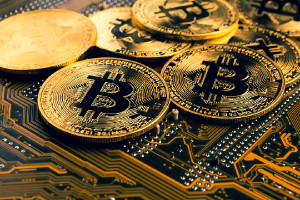First, virtual currency is not issued by any country and is not tied to a specific currency in the world. Virtual currency is not issued, not guaranteed by the laws of any country. The functions of the virtual currency identified above are only performed according to the will of the community subjects who use virtual currency in transactions. It means that the driver of the price increase of virtual currency is the trust of the people in the community using and exchanging money.

China has banned Bitcoin with the assessment that this virtual currency contains many risks. In the Russian Federation, the Federal Prosecutor’s Office issued a regulation, prohibiting the use of Bitcoin virtual currency as well as other digital currencies. Thailand also banned the circulation and use of Bitcoin. After the bank of this country determined that this was not a reputable currency unit. Therefore, it is strictly forbidden to buy, sell, send, or pay in Bitcoin from any entity other than Thailand or receive it from other countries.
In Vietnam, at present, according to Clause 6,7, Article 4 of Decree 101/2012/ND-CP (amended and supplemented by Decree 80/2016/ND-CP) stipulates as follows:
“6. Non-cash payment instruments used in payment transactions (hereinafter referred to as payment means), include: checks, payment orders, payment orders, collection orders, collection orders, bank cards and other payment instruments. other means of payment according to regulations of the State Bank.
7. Illegal means of payment are means of payment not specified in Clause 6 of this Article.”
Therefore, virtual currency does not fall into the above case and is considered an illegal means of payment.
In addition, according to the official letter No. 5747/NHNN-PC of the State Bank of Vietnam sent to the government office to reply on the issue of virtual currency, it also does not recognize Bitcoin or any other cryptocurrencies as a currency and can be used for payment. However, Vietnam’s law does not have any regulations governing this issue if cryptocurrencies are considered a commodity.
The issuance, supply and use of virtual currency can be subject to administrative sanctions and even criminal liability. According to Clause 6, Article 26 of Decree No. 88/2019/ND-CP on administrative sanctions in the field of currency and banking activities, acts of issuing, supplying and using payment means are not legal (including Bitcoin and other similar virtual currencies) will be administratively fined from 50-100 million VND.
In addition, if causing serious damage consequences, they may be examined for penal liability according to Article 206, the Penal Code 2015 as amended and supplemented in 2017.
Therefore, investors can still invest in virtual currency, as long as it is not used for payment purposes and must accept the risks for this investment.
Above is our advice on this matter. If you need more detailed advice as well as how to access this service, please contact Lawyer – Mr. Nguyen Duc Trong directly via hotline: 0912.35.65.75, 0912.35.53.53 or call Free Consultancy Center 1900.6575 or send a service request via email: info@hongbanglawfirm.com
We wish you and your family good health, peace and success!
Best regards!
Hong Bang Law Firm.

